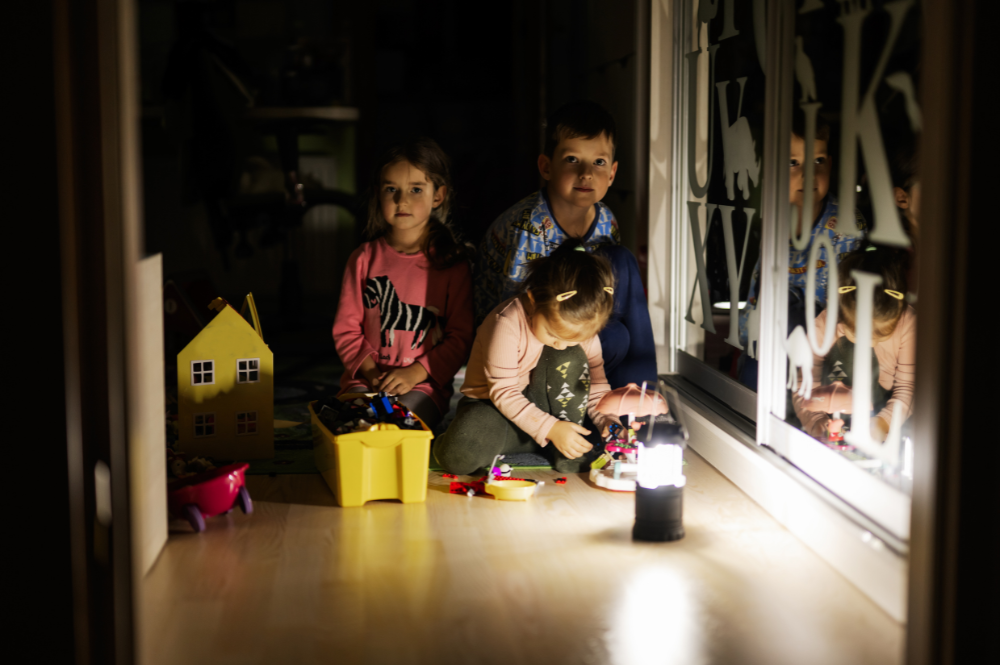Amidst ageing energy infrastructure and unpredictable weather patterns, countless Australian homeowners find themselves at the mercy of unexpected power outages. The good news is, for those who’ve already embraced solar energy, there’s a solution to fortify your energy resilience: solar batteries. Discover how you can enhance your home’s power reliability with a solar battery, including simple steps to take in preparation for, and in the event of, a power outage.
Solar batteries for blackouts
How to prepare for a power outage
Whether you’ve got an existing solar system or not, all homeowners can benefit from a proactive approach to power outages. Instead of scrambling for supplies during an emergency, create an emergency kit now.
- Purchase torches and spare batteries
- Keep power banks charged so you can top up your mobile devices when needed
- Make sure essential medical equipment has a battery backup
- Stock up the pantry with food and beverage items that don’t require heating or cooling
- Keep your car charged or full of fuel regularly
- Consider adding a solar battery to your existing on-grid system
While this list is in no way exhaustive, it’s a starting point. We encourage you to research this topic thoroughly.
Why solar batteries?
To ensure a continuous supply of power for your home, it’s essential to have a reliable backup power source, like a solar battery. It’s the cleanest, most efficient, and most reliable option. Power outage or not, adding a solar battery to your existing on-grid system comes with several benefits, including:
- Uninterrupted power during outages: Solar batteries act as a reliable source of backup power, keeping your essentials running smoothly in the event of a power outage. While others are sadly affected by a loss of power, you are able to be your own power source. Bear in mind, factors like battery storage capacity and energy usage during the power outage period are important to keep in mind, as to the length of time that the battery can service you
- Energy independence: Reduce your reliance on the grid during peak hours by tapping into your stored reserves. This not only guarantees a consistent power supply, but also empowers you to dictate your electricity usage. By breaking free from grid constraints, you can gain power over when and how you use your stored solar energy, optimising efficiency and cost-effectiveness
- Long-term cost savings: Optimise your energy savings by using stored energy strategically during peak hours, and reducing your dependency on the grid when electricity rates are high. The outcome? Significant long-term savings on your energy bills
How to get started with a solar battery
- Assess your energy needs: Evaluate your energy usage patterns to determine the right battery capacity for your unique household needs
- Consult with solar experts: Work with a solar professional, like us, who can assess your existing system and recommend the ideal battery solution to complement your solar setup. Whether we installed your existing system or not, if you’re in our catchment area (northern NSW to south-east Queensland), we can help you
- Enjoy a seamless integration: Adding a solar battery to your existing system is a seamless process. It integrates with your current on-grid system, providing instant benefits without the need for a complete overhaul
What to do during a power outage, if you don’t yet have a solar battery
If you’re reading this, you likely don’t have a hybrid solar system (which includes a solar battery). So, while you’re considering adding a battery to your existing on-grid system, the following should be useful to you in the event of a power outage:
- Unplug sensitive electrical appliances
- Keep one light switch on, so you know when the power returns
- Keep your fridge and freezer doors closed, to protect your perishables
- Stay across news and updates
- Call your electricity provider if possible
- Use torches for lighting and avoid using candles


Leave A Comment